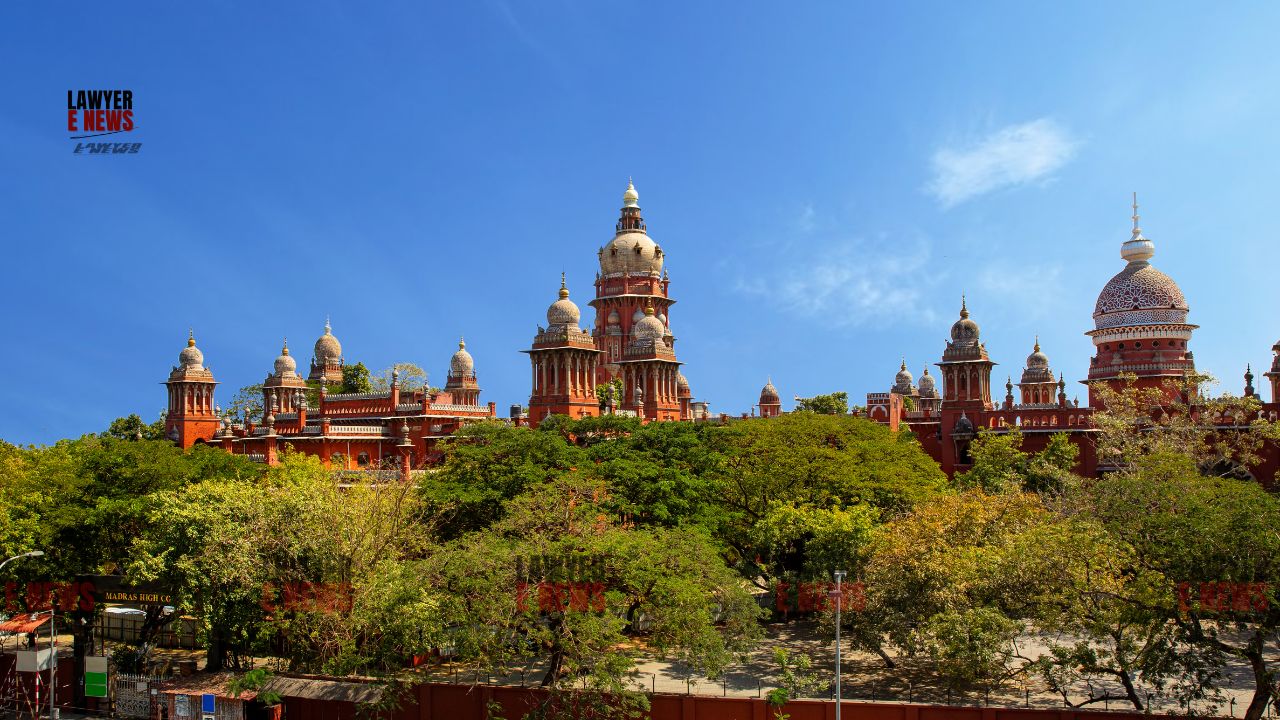-
by Admin
15 February 2026 5:35 AM



The Madras High Court has ordered the eviction of Advocate B. Amarnath from a disputed property after finding that he forged rental agreements to illegally occupy the premises. The court also directed the Bar Council of India and the Bar Council of Tamil Nadu and Puducherry to take disciplinary action against him under the Advocates Act, 1961, and Bar Council of India Rules, 1975. The decision emphasizes the court's commitment to upholding the integrity of the legal profession and preventing abuse of legal status for personal gain.
The petitioner, B.L. Madhavan, who is the owner of the property in question located at CIT Nagar, Chennai, accused Advocate B. Amarnath of forging lease agreements to illegally occupy his property. The dispute arose when Amarnath, initially a tenant, failed to vacate the premises after the expiry of the lease and expanded his occupancy by creating fake rental agreements. Despite complaints filed with the Bar Council and local police, no substantial action was taken, prompting the petitioner to approach the High Court for relief.
The court was provided with a forensic report confirming that the signatures on the rental agreements presented by Advocate Amarnath were forged. The Assistant Commissioner of Police, who conducted the inquiry, reported that the agreements were fabricated, and no evidence was found to support Amarnath's claim that he had paid rent as per the agreements.
The court took a serious view of the misconduct by the lawyer, highlighting the expectations placed on legal professionals to maintain high ethical standards both inside and outside the courtroom. Justice S.M. Subramaniam observed that Amarnath’s actions not only constituted a breach of trust but also brought disrepute to the legal profession.
The court referenced Section 35 of the Advocates Act, 1961, which allows for the punishment of advocates found guilty of professional misconduct. The judgment noted that creating forged documents to occupy property is a grave offense, particularly when committed by a lawyer, and warrants strict disciplinary action by the Bar Council.
Justice S.M. Subramaniam remarked, "A lawyer who misuses his position to commit forgery and illegal occupation of property undermines the very foundation of the legal profession. The Bar Council is obligated to ensure that such misconduct does not go unpunished."
The Madras High Court's ruling sends a clear message that the legal profession must adhere to the highest ethical standards. The court's directives to the Bar Council to take disciplinary action against Advocate Amarnath underscore the judiciary's commitment to maintaining the integrity of the legal system. The eviction order and subsequent legal proceedings are expected to serve as a deterrent against similar misconduct in the future.
Date of Decision: August 27, 2024
B.L. Madhavan v. The Secretary, Bar Council of Tamil Nadu and Puducherry & Others
